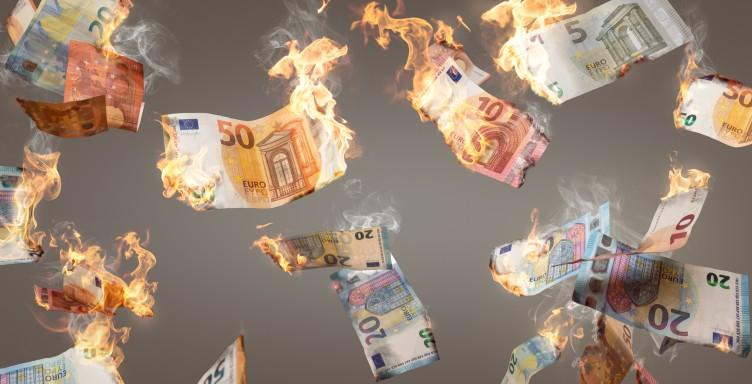Hope all goes well. Wanted to share exciting news. Coinbase has acquired One River’s subsidiary, One River Digital Asset Management [here]. In November 2020, One River purchased cryptocurrency, making an investment in digital assets to express an emerging macro theme. We quickly realized the potential for blockchain technologies to replace antiquated infrastructure across the financial industry. It became evident that digital and traditional finance would likely converge in the coming decade. Shortly thereafter, we formed the subsidiary, One River Digital Asset Management, with the goal of building the industry’s leading institutional digital asset manager. Since then, we have created an extraordinary team and a suite of digital asset management products, some of them industry firsts. We also recognized that a few key pieces of infrastructure would be critical for the digital industry to scale and merge with traditional finance. We have been building these. Playing the long game, we concluded that by aligning ourselves with Coinbase, the clear industry leader, we could more fully realize our potential and deliver the greatest possible value to our clients and the industry. Coinbase and One River are both founder-led, innovative, entrepreneurial firms, and are culturally well-aligned. Following the acquisition, I will continue to lead both One River Asset Management (“ORAM”), which will remain independent, and Coinbase Asset Management (“CBAM”). I couldn’t be more thrilled with this outcome.
That's the short of it. For the longer story of how we arrived here, please read on...
One River made its first investment in digital assets in November 2020 [here]. At the time, it was one of the largest institutional allocations to these assets in history and was driven and funded by one of our most prominent investors, a true iconoclast. Underlying the investment was a belief that bitcoin and ether represented highly convex expressions of a global macro investment theme that unfolded post-Covid: Monetary Debasement. We worked exclusively with Coinbase to execute and custody those investments [here]. It was extraordinary to complete such a massive trade without materially moving the market, all while maintaining complete confidentiality. I was left with a deep respect for the team and capabilities that Coinbase built. It was also one of the most exciting periods in my career.
We quickly came to believe that blockchain technologies would replace the antiquated infrastructure across the financial industry. In that world, all assets would become tokenized, and enormous value would accrue to digital assets and the firms focused on this infrastructure in the decades ahead. In January 2021, I articulated my thoughts in The Case for Digital Assets [here]. As a highly opportunistic investor with an entrepreneurial team, our partnership decided to launch One River Digital Asset Management.
We needed deep regulatory expertise to realize our goal of building the leading institutional asset manager in this nascent field. I asked for an introduction to Jay Clayton shortly after he left the SEC in late December 2020. We met, and over the first few months of 2021, found common ground in the potential importance of the technology underlying digital assets to the financial services industry and U.S. national interests [here]. We believed that the technology gap between digital and traditional finance would be bridged, and that One River could contribute to a positive outcome. Jay worked with me to build a profoundly experienced and diverse Academic and Regulatory Advisory Council for One River Digital, including Jason Cummins, Courtney Simmons Elwood, Harold Ford Jr., Kevin Hassett, and Jon Orszag [here, here, and here]. The Council's focus on the interests of investors, prudential considerations, and national security matters, all with a pragmatic perspective, has been and will continue to be invaluable. Jay will continue to chair the Council following the transition to Coinbase Asset Management.
We also knew we would need substantial working capital to achieve our ambitions, especially in such a volatile emerging asset class. In September 2021, Coinbase Ventures led a Series A investment round in One River Digital Asset Management that included participation from Goldman Sachs and Liberty Mutual Insurance [here]. This gave our firm years of working capital to achieve our ambitions. We grew our headcount at a modest pace, focusing on finding uniquely talented and passionate individuals that fit well into our culture. When the Fed embarked on one of the fastest tightening cycles in recent history in 2022, and digital asset markets along with most other long-duration assets came under severe pressure, we were thankfully well-prepared.
The team we assembled has been building a suite of institutional digital asset management products throughout this period that now includes index, income, systematic trend-following, and credit. We had crystallized over $1 billion in gains from our early investments in bitcoin and ether and returned that capital to our investors by the end of 2021. Some of what we built were industry firsts like 365-day fund liquidity [here], a carbon-neutral bitcoin fund [here], and an institutional ether staking fund [here]. Our investment strategies delivered on their objectives through even the most severe dislocations during the 2022 market declines. I’ve spent my career focused on taking risks while carefully watching our flank. We avoided any exposure to Luna, 3 Arrows Capital, Celsius, Voyager, BlockFi, FTX, FTT, and other high-profile failures in the space. Our digital income fund received a return of 100% of its loan capital plus interest when others lost everything. Enormous credit is due to Marcel Kasumovich, our Deputy CIO, and the exceptional investment and operations team that we have assembled.
But our team was not only focused on investments. We also recognized that a few key pieces of infrastructure would be critical for the digital industry to scale over time. The team’s dynamism shone by designing and building this infrastructure, with the severe market downturn the perfect environment to execute. The first project, initially announced last year [here], leverages Coinbase Prime technology and is kicking off a pilot program with a few select clients. I expect that nearly all of us will use this infrastructure in the next decade. If it is not ours that is used, then it will be a competitor’s; we intend to win this race, and our combination with Coinbase makes it a far more likely outcome.
Last year, we started discussing opportunities for further collaboration with Coinbase. They are the leader in this industry and, like us, have built their business with an eye toward playing the long game. Both firms have prioritized customer protection and recognized the importance of working with regulators to bring this asset class into the mainstream. With so much shared history and the formation of strong bonds of trust and mutual respect, I developed a strong conviction that we would more fully realize our ambitions as a pillar within Coinbase. Our equity partners, advisors, and employees strongly approved.
Coinbase and I agreed that my highest value would be in continuing to straddle the traditional finance and digital finance worlds in a balanced manner. Few people have this vantage point, and thus few can glean the insights that come from such a unique role. I expect this will create substantial benefits for all our clients in the decade ahead. I will lead Coinbase Asset Management, working closely with my Deputy CIO, Marcel Kasumovich, and our amazing team. I will also continue to lead One River Asset Management, a firm I founded 10 years ago that is now fully independent of CBAM and manages $3 billion for institutional investors across the globe. Supporting me at One River will be my Deputy CIOs, Ryan McRandal and Stephen Prajna, and our extraordinary team.
The decade ahead will be fascinating and exhilarating, and I am incredibly grateful for this opportunity.
All the very best,
Eric Peters
Chief Executive Officer & Chief Investment Officer
One River Asset Management
Stamford, CT
DISCLOSURE
This communication, and the information contained herein, has been provided to you by One River Digital Asset Management, LLC (“One River”) solely for informational purposes. This communication is intended solely for use by accredited investors and qualified eligible persons, and may not be reproduced or redistributed in whole or in part, in any format, without the expressed written approval of One River. Neither the information, nor any opinion contained in this communication, constitutes an offer to buy or sell, or a solicitation of an offer to buy or sell, any advisory services, securities, futures, options or other financial instruments or to participate in any advisory services or trading strategy. Nothing contained in this communication constitutes investment, legal or tax advice. You should make your own investigations and evaluations of the information herein. Any decisions based on information contained in this communication are the sole responsibility of the reader.
Investments in Virtual Currencies, Virtual Currency Derivatives, or Digital Assets are speculative and have unique risks including but not limited to, (i) that they are not legal tender in the United States and as such the value is based on the agreement of the parties in the transaction, (ii) the price of a virtual currency is based on the perceived value of the virtual currency and subject to changes in sentiment, which make these products highly volatile potentially subject to rapid and substantial price movements which could result in significant losses, (iii) the lack of a centralized pricing source poses valuation challenges for market participants trying to exit a position, particularly during periods of stress, (iv) a cybersecurity event which could result in a substantial, immediate, and irreversible loss for market participants that trade virtual currencies, (v) virtual currency balances are generally maintained as an address on the blockchain and are accessed through private keys, which may be held by a market participant or a custodian, (vi) the lack of regulatory oversight creates a risk that a virtual currency exchange may not hold sufficient virtual currencies and funds to satisfy its obligations and that such deficiency may not be easily identified or discovered resulting in significant losses, (vii) currently virtual currencies face an uncertain regulatory landscape in the United States and many foreign jurisdictions and laws, these changing regulations or directives may impact the price of virtual currencies, (viii) the new and rapidly evolving technology underlying virtual currencies could also have adverse implications for investors, (ix) many virtual currencies allow market participants to introduce fees which may not be defined or known adding to the cost on a pass through basis to investors. PAST PERFORMANCE IS NOT NECESSARILY INDICATIVE OF FUTURE RESULTS.
Certain statements in this communication reflect One River’s views, estimates, opinions or predictions (which may be based on proprietary models and assumptions, including, in particular, One Rivers’s views on the current and future market for certain digital assets), and there is no guarantee that these views, estimates, opinions or predictions are currently accurate or that they will be ultimately realized. To the extent these assumptions or models are not correct or circumstances change, the actual performance may vary substantially from, and be less than, the estimates included herein.
Certain information contained in this communication constitutes "forward-looking statements," which can be identified by the use of forward-looking terminology such as "may", "will", "should", "expect", "anticipate", "target", "project", "estimate", "intend", "continue" or "believe" or the negatives thereof or other variations thereon or comparable terminology. Forward-looking statements made in this communication are based on current expectations, speak only as of the date of this communication, as the case may be, and are susceptible to a number of risks, uncertainties and other factors. Assumptions relating to the foregoing involve judgments with respect to, among other things, projected inflation, the regulation of digital assets and macroeconomic policy, all of which are difficult or impossible to predict accurately and many of which are beyond our control. Although we believe that the assumptions underlying the projected results and forward-looking statements are reasonable, any of the assumptions could be inaccurate and, therefore, there can be no assurance that the forward-looking statements included in this communication will prove to be accurate. In light of the significant uncertainties inherent in the forward-looking statements included herein, the inclusion of such information should not be regarded as a representation to future results or that the objectives and plans expressed or implied by such forward-looking statements will be achieved.
None of One River’s shareholders, partners, members, directors, officers, management, employees or representatives makes any representation or warranty, express or implied, as to the accuracy or completeness of any of the information or any other information (whether communicated in written or oral form) transmitted or made available to you. Each of the aforementioned parties expressly disclaims any and all liability relating to or resulting from the use of this information. Certain information contained herein (including financial information) has been obtained from published and non-published sources. Such information has not been independently verified by One River and, One River, does not assume responsibility for the accuracy of such information. Except where otherwise indicated, the information in this communication is based on matters as they exist as of the date of preparation and not as of any future date, and will not be updated or otherwise revised to reflect information that subsequently becomes available, or circumstances existing or changes occurring after the date hereof.
Registration with the SEC and the CFTC, memberships with the NFA and the QPAM status in no way implies a certain level of skill or expertise or that any of the SEC, the CFTC, or the NFA have endorsed One River Digital Asset Management.
ONE RIVER DIGITAL ASSET MANAGEMENT, LLC IS A MEMBER OF NFA AND IS SUBJECT TO NFA'S REGULATORY OVERSIGHT AND EXAMINATIONS. ONE RIVER DIGITAL ASSET MANAGEMENT, LLC HAS ENGAGED OR MAY ENGAGE IN UNDERLYING OR SPOT VIRTUAL CURRENCY TRANSACTIONS IN A COMMODITY POOL OR MANAGED ACCOUNT PROGRAM. ALTHOUGH NFA HAS JURISDICTION OVER ONE RIVER DIGITAL ASSET MANAGEMENT, LLC AND ITS COMMODITY POOL OR MANAGED ACCOUNT PROGRAM, YOU SHOULD BE AWARE THAT NFA DOES NOT HAVE REGULATORY OVERSIGHT AUTHORITY FOR UNDERLYING OR SPOT MARKET VIRTUAL CURRENCY PRODUCTS OR TRANSACTIONS OR VIRTUAL CURRENCY EXCHANGES, CUSTODIANS OR MARKETS. YOU SHOULD ALSO BE AWARE THAT GIVEN CERTAIN MATERIAL CHARACTERISTICS OF THESE PRODUCTS, INCLUDING LACK OF A CENTRALIZED PRICING SOURCE AND THE OPAQUE NATURE OF THE VIRTUAL CURRENCY MARKET, THERE CURRENTLY IS NO SOUND OR ACCEPTABLE PRACTICE FOR NFA TO ADEQUATELY VERIFY THE OWNERSHIP AND CONTROL OF A VIRTUAL CURRENCY OR THE VALUATION ATTRIBUTED TO A VIRTUAL CURRENCY BY ONE RIVER DIGITAL ASSET MANAGEMENT, LLC.





